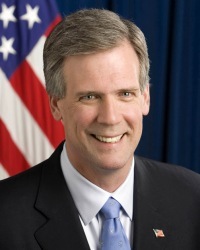A Quote by Barack Obama
Where we get into problems, typically, is when our personal religious faith, or the community of faith that we participate in, tips into a sort of fundamentalist extremism, in which it's not enough for us to believe what we believe, but we start feeling obligated to, you know, hit you over the head because you don't believe the same thing. Or to treat you as somebody who's less than I am.
Related Quotes
Faith is a great thing, and really religious people would like us to believe that faith and knowing are the same thing, but I don't believe that myself. Because there are too many different ideas on the subject. What we know is this: When we die, one of two things happens. Either our souls and thoughts somehow survive the experience of dying or they don't. If they do, that opens up every possibility you could think of. If they don't, it's just blotto. The end.
I do believe that nice religious people make the world safe for extremists by teaching us [...] that faith is a virtue, teaching us that there's something good about holding beliefs without any substantiating evidence. Once you buy into that, [...] then the door is opened to extremists who defend their extremism by saying, 'Oh well, it's my faith, you can't touch it, you can't criticise my faith, I don't even need to defend it because faith is faith.'
I do not recall another period when ‘faith’ was as popular as it is today. ‘If only we believe hard enough we'll make it somehow.’ So goes the popular chant. What you believe is not important. Only believe... What is overlooked in all this is that faith is good only when it engages truth; when it is made to rest upon falsehood it can and often does lead to eternal tragedy. For it is not enough that we believe; we must believe the right thing about the right One.
Faith, then, generically, is confidence in a personal being. Specifically, religious faith is confidence in God, in every respect and office in which He reveals Himself. As that love of which God is the object is religious love, so that confidence in Him as a Father, a Moral Governor, a Redeemer, a Sanctifier, in all the modes of His manifestation, by which we believe whatever He says because He says it, and commit ourselves and all our interests cheerfully and entirely into His hands, is religious faith.
That's true that I'm "not religious as that term is conventionally understood," though I've never been an atheist. Atheism is an active faith; it says, "I believe there is no God." But I don't know what I believe. I was brought up a Lutheran in Jamestown, North Dakota. I have trouble with faith. I'm not proud of this. I don't think it makes me an intellectual. I would believe if I could, and I may be able to before it's over. I would welcome that.
I do believe that people of all religions have a right to build edifices or structures or places of religious worship or study where the community allows them to do it under zoning laws and that sort of thing, and that we don't want to turn an act of hate against us by extremists into an act of intolerance for people of religious faith.
Believe nothing on the faith of traditions, even though they have been held in honor for many generations and in diverse places. Do not believe a thing because many people speak of it. Do not believe on the faith of the sages of the past. Do not believe what you yourself have imagined, persuading yourself that a God inspires you. Believe nothing on the sole authority of your masters and priests. After examination, believe what you yourself have tested and found to be reasonable, and conform your conduct thereto.
I have great hope and faith, but it's a humanistic faith based in facts; you have to believe that facts exist. We can all arrive at the same facts if we engage in the process of experimentation, observation, and verification, which can solve more of the world's major problems than a debate over whether God does or doesn't exist.
But what, after all, is faith? It is a state of mind that leads people to believe something - it doesn't matter what - in the total absence of supporting evidence. If there were good supporting evidence then faith would be superfluous, for the evidence would compel us to believe it anyway. It is this that makes the often-parroted claim that 'evolution itself is a matter of faith' so silly. People believe in evolution not because they arbitrarily want to believe it but because of overwhelming, publicly available evidence.

































